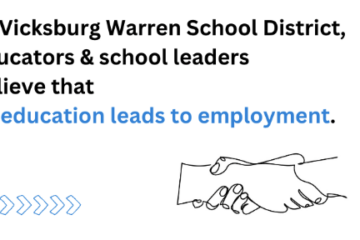Cross-posted from Education Week
I feel, some days, as though I am trying to swim upstream when all about me are going in the other direction. I am hailing those going by me, saying, “Hey! Stop!” But they don’t. They look at me and scratch their heads and go on.
When I look at the growing number of countries with education systems more successful than ours, I see countries–and states within those countries—with effective governance systems—strong ministries of education that have the support of their people, attract competent staff and do their job well. They are not merely maintaining a well-functioning system but have long been responsible for redesigning it to meet needs very different from those that used to drive the design of their system.
And that’s just it. Social systems like mass education systems do not just happen. They are intricate things. They require design. The parts and pieces need to fit together. The most effective mass education systems in the world have designers. And, inevitably, that designer is the government agency to which responsibility for that function has been assigned.
And that’s the short of it. These days, good, competent government is the key to the design of successful education systems. But, it seems, the United States does not believe in government. Whenever I have a chance to engage my friends in a conversation about what I am thinking about these days, and we get to the state of education in the United States and I tell them what I am doing, they say, “Why that’s wonderful! So glad you’re doing that. What do you think needs to be done?” And I tell them. And there is this stony silence. And then, “You think we need to have stronger state education agencies? Well, I can see your point, but, really, you and I both know that government can’t get anything right.” And they drift away.
I fear for this country. Government is nothing more than the means that people everywhere have for acting collectively. It is not them. It is us. When I was in my 20s, John Kennedy urged us not to ask what our country could do for us, but what we could do for our country. The best and brightest of our young people came to Washington to work for government, just as they had in Franklin Roosevelt’s administration and would in Lyndon Johnson’s. Jimmy Carter was the first president in modern times who ran for office against the federal government. Ronald Reagan based much of his campaign on that theme. Since then, candidates of both parties have routinely run against the government at every level.
And we have paid a terrible price for that. Capable young people still come to work in the Congress. But they come for just long enough to learn the ropes and to join the network of insiders, and then they get out to capitalize on their insider status to make as much money as possible. It is extremely difficult to get the best of our young people to join the executive branch as career government officers. Who would want to work in one of the most reviled occupations available in the United States?
And so we seal our own fate. Having blamed our failings on our government, we make it extremely difficult to attract competent people to government. And then—no surprise—this same government—starved of competent staff, fails us. And then, delighted to find that we were right all along, we cut the budget of these agencies and these “bureaucrats,” and it fails us again. The only miracle here is that government functions at all, for we have long gotten much more and much better from our government servants—the air traffic controllers who keep our planes in the air, the coast guardsmen who fish us out of the water, the ATF staff who die in our drug wars—than we have deserved.
I am tempted to say to the fish going downstream, “I know it is obvious to you that government cannot do the job. But it is obvious to me that this is a job for government, that it is not possible to build a world class education system on a state or national scale unless government designs it and runs it. So, for you to say that government cannot do it is to say that you do not think we can have a world-class education system in the United States. You don’t know it yet, but you have given up.”
Well, I am not giving up. Are you?





